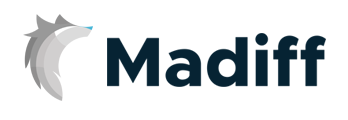With the advancement of technology and globalization, the market is continuously demanding professionals that are more and more prepared to deal with the adversities faced by any professional.
Besides technical specialization or hard skills (abilities that can be measured and developed through courses and training), behavioural abilities or soft skills are becoming more and more important in this scenario.
What are soft skills?
Soft skills are personal abilities related to social behaviour and the way we express ourselves emotionally. Therefore, these skills are very relevant to the professional environment.
To have a good professional relationship with your peers, it is important to create a good collaborative atmosphere. This can be done through the development of a clear and open channel of communication and by collaborating to amplify the quality of delivered tasks.
Additionally, dealing with emotions and adversities healthily can be an advantage on your career, and you can develop it through emotional intelligence and organizational abilities. By working on these two soft skills, you can successfully create a cooperative happy work environment.
If you wish to stand out professionally, we will approach below the 4 main soft skills for developers.
Soft skills for developers
Collaboration
Only individuals that can successfully collaborate with others, will be able to solve the most complex daily issues. This soft skill is mandatory for a developer, since most projects will require teamwork, with professionals from different technical backgrounds.
Having a multiskilled team with different point of views can be challenging but may also be the key point to create innovative ideas and making strategic decisions.
The availability and empathy that comes from collaboration result in a significant increase in the quality of team delivery. In some cases, collaboration may also help on productivity since the team will be more open to suggestions and improvements will be put in practice in a shorter time frame.
To exercise collaboration in the work environment, a developer can be available to help his colleagues, even in tasks they do not excel in. This is positive both for your personal development and for strengthening bonds with the team.
Communication
Communication is formed by both the individual sending information and the individual receiving it. It is a two-way street, whereas any element that comes between this path (such as noise, lack of attention, disconnected ideas, and even personal opinions) can interfere on the exchanged information. The receiver cannot understand the message, while the sender cannot be understood.
Internal effective communication reduces the amount of energy spent on resolving conflicts (usually caused by the lack of dialogue), increases productivity by providing continuous satisfaction, develops professional relationships and, finally, results in more efficient organizations.
Understanding that everyone has different background and is used to different formats of communication will help you develop more empathy and patience towards your peers. This is the key to develop the soft skill of communication.
Emotional Intelligence
Emotional intelligence provides self-perception and self-knowledge to help us control our reactions and deal with daily challenges in a more healthy, successful way. Developing emotional intelligence is also a great way to be more familiar with non-verbal emotional signs of people around us. By doing so, you have the skill to develop strong healthy professional bonds.
To develop emotional intelligence, it is important to know our emotions, by analysing our own behaviour and their motives. This way we develop a self-awareness of the impact of day-to-day situations in our attitudes.
Furthermore, in a work environment it is important to have maturity to deal with adversities and challenges that come across our routine. Knowing how to maintain an assertive communication with peers, taking into consideration their emotions, is a good start to create a more balanced workspace.
Organization
Organization is the base for improving quality and efficiency of your work. Being an organized person saves time: information can be found quicker, and errors related to neglecting are reduced.
On a corporate environment, everyone has an individual and a collective mission. Knowing how to keep these 2 connected may be an advantage. In other words: people need to manage their day to day activity while focusing on the end product, since these conjoint efforts will contribute for the general mission of the organization.
Some simple things you can do to develop your organization skills in the word environment are: defining priorities, making 5 minutes breaks every hour to keep focus and communicating effectively any difficulty that keep you from delivering your work in time.
Social or soft skills are increasingly important on every industry, but specially for developers. As a developer, it is expected that you will be more introverted and work better on your own, so why not step up your game and use soft skills in your favour? You might be impressed how much it can do for your career!
